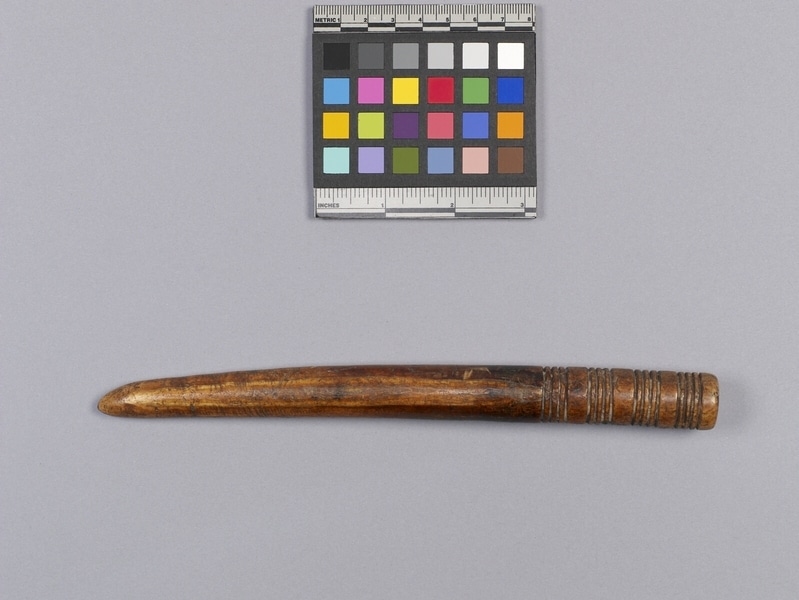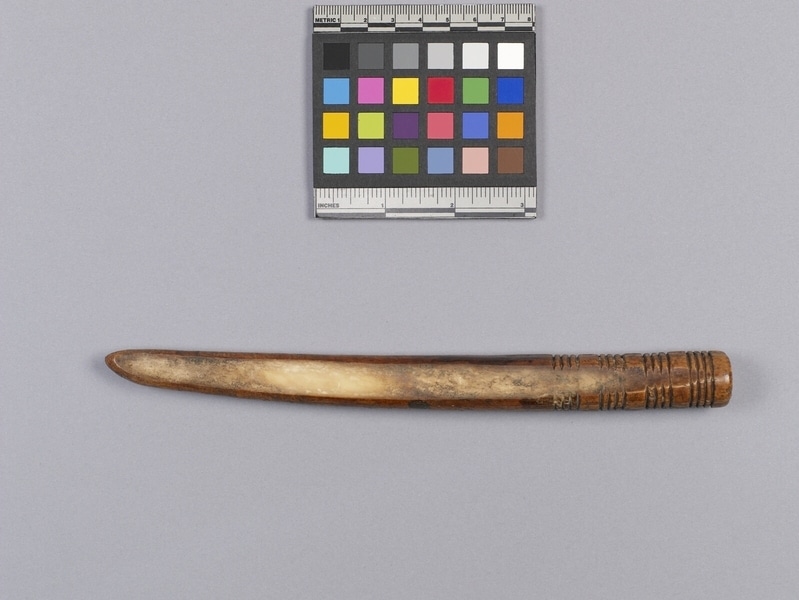Divination Wand Item Number: Af447 from the MOA: University of British Columbia


Description
Ifa divination wand. Cylindrical piece of darkened ivory, possibly stained. Piece tapers to a point at one end, while the other end is flat. there are four sets of four incised rings, each on the thick end.
History Of Use
The Ifa divination system is practiced among Yoruba communities in west Africa, and by the African diaspora in the Americas, the Caribbean, and around the world. The word Ifa refers to the mystical figure Ifa or Orunmila, regarded by the Yoruba as the deity of wisdom and intellectual development. Ifa divination makes use of an extensive corpus of texts and mathematical formulas, and relies on a system of signs that are interpreted by a diviner: the Ifa priest or babalawo, literally “the priest’s father.” The Ifa divination system is applied whenever important individual or collective decision has to be made. The Ifa literary corpus is called odu. It consists of 256 parts, each divided into verses called ese, whose exact number is constantly increasing (there are around 800 ese per odu). Each of the 256 odu has its specific divination signature that is determined by the babalawo using sacred palm nuts and a divination chain. The ese, considered the most important parts of Ifa divination, are chanted by the priests in poetic language. They reflect Yoruba history, language, beliefs, cosmovision and contemporary social issues.
Narrative
According to the collector's notes, this wand and tray (Af446) were used by a 'babalawo' in Abeokuta, Nigeria. The priest was the father of Ukini, a thorn carver.
Item History
- Made in Nigeria before 1972
- Collected during 1972
- Owned by Andrew Stewart and Jessie Stewart before February 8, 1980
- Received from Andrew Stewart (Donor) and Jessie Stewart (Donor) on February 8, 1980
What
- Name
- Divination Wand
- Identification Number
- Af447
- Type of Item
- wand
- Material
- elephant ivory
- Manufacturing Technique
- carved
- Overall
- height 22.7 cm, width 1.8 cm
Who
- Culture
- Yoruba
- Previous Owner
- Andrew Stewart and Jessie Stewart
- Received from
- Andrew Stewart (Donor) and Jessie Stewart (Donor)
Where
- Holding Institution
- MOA: University of British Columbia
- Made in
- Nigeria
When
- Creation Date
- before 1972
- Collection Date
- during 1972
- Ownership Date
- before February 8, 1980
- Acquisition Date
- on February 8, 1980
Other
- Condition
- good
- Accession Number
- 0590/0013 b